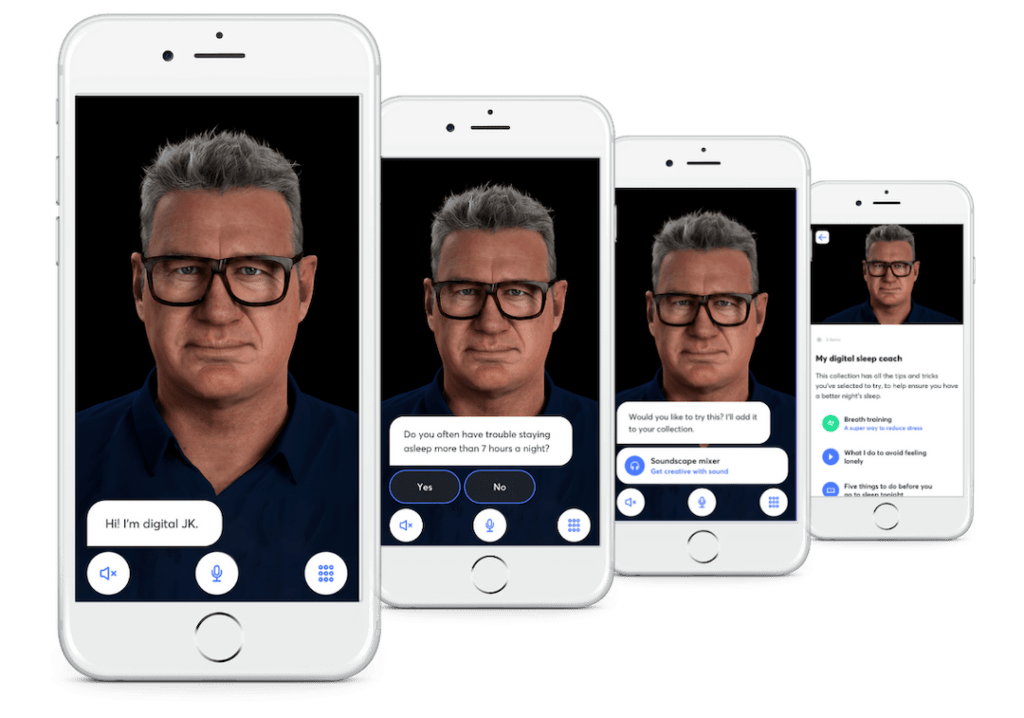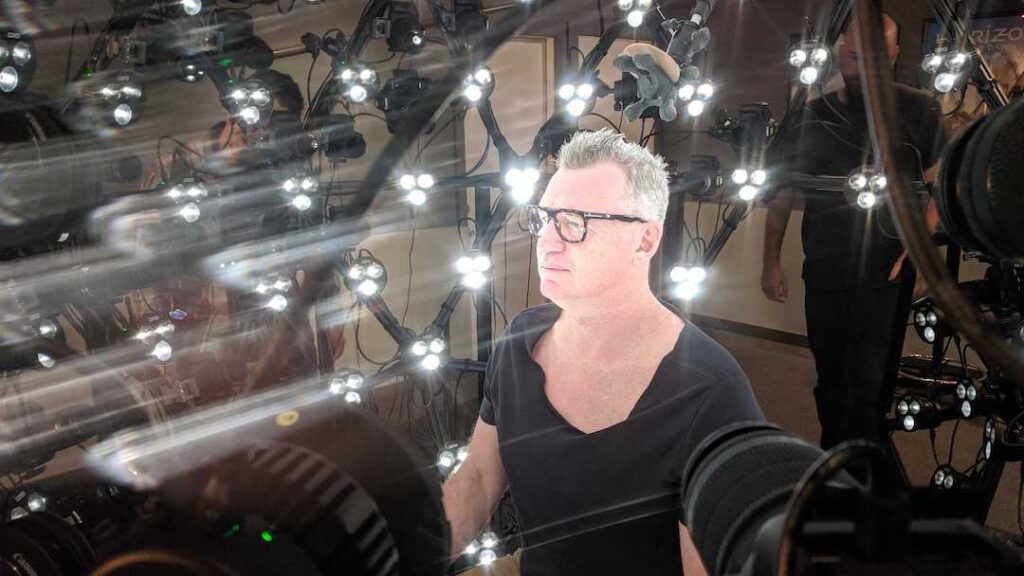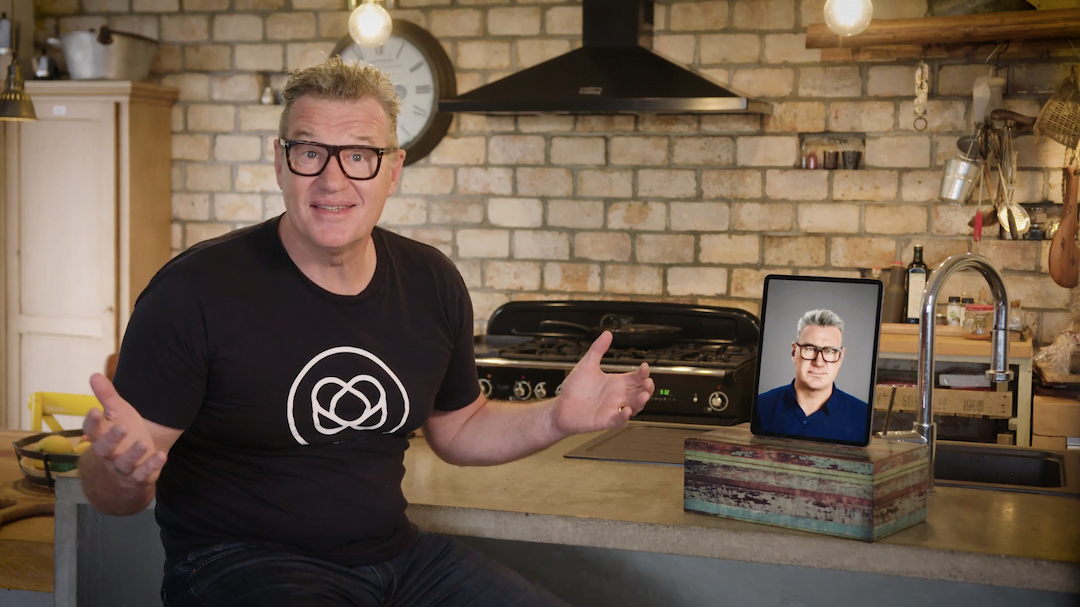Former New Zealand rugby great Sir John Kirwan may not be well known in Australia, particularly outside the rugby strongholds of NSW and Queensland, but that may be about to change.
For many years Kirwan has led the charge to improve the mental health of New Zealanders, firstly by making his story of depression and thoughts of suicide public and becoming a mental health ambassador in New Zealand. In more recent times, he co-founded Mentemia, an app which helps people improve their mental wellness.
In 2021, that app has been taken to a new level with Kirwan being “cloned.” The rugby great has been transformed into an AI-enabled digital human to tackle mental health and wellbeing.
The AI-powered version of Kirwan – known as DJK – looks and talks just like the former footballer. He has been added to the Mentemia platform as a “Sleep Coach” to offer tips on sleep, answer sleep-based questions, and help users develop a sleep improvement plan.
“We chose to start with sleep because good sleep is absolutely fundamental to good mental health. We can all relate to how we feel if we have a poor night’s sleep, so it was a natural place to start for DJK,” Kirwan says.
One of the key reasons for developing DJK as a digital wellness coach was not to replace existing services but to provide additional much-needed support to the mental health sector and to reach more people in need.
“It’s well known there is a huge need for mental wellbeing support. Using digital solutions is one of the most efficient ways to reach as many people as possible,” Kirwan adds.
“Digital humans are not a replacement for real therapists, but AI is a really important part of the future of mental wellbeing. Mentemia is at the forefront of that technology.”
So, will Australians confide in an AI-powered digital human? According to research, the answer is yes.
A recent study was conducted by advisory firm Oracle and HR research company Workplace Intelligence to investigate the need for digital solutions when it came to mental health. The research group consisted of 12,000 employees across 11 countries. The results demonstrated that 80 per cent of people were open to having a robot – such as an AI-powered therapist or chatbot counsellor – as their confidante.

Why trust a digital wellness coach over human support?
It’s because employees believe an AI-powered therapist provides a judgment-free zone (34 per cent), an unbiased outlet to share problems (30 per cent), and quick answers to health-related questions (29 per cent).
Researchers from the University of Southern California also found people were more open to revealing personal information to a virtual interviewer called Ellie than to a real therapist.
In Australia, the Australian Association of Psychologists says that an estimated 45 per cent of Australians experience a mental health problem in their lifetime, yet more than half will not access treatment, many because of the stigma attached.
The COVID-19 pandemic has created a two-pronged problem in the battle against mental health.
There has long been a shortage of psychologists in Australia. 2018 figures from the Australian Institute of Health and Welfare show 27,027 psychologists with full registration. That is 92.3 psychologists for every 100,000 Australians.
Secondly, the demand for psychologists is out stripping supply with the Australian Association of Psychologists revealing that more than one in three psychologists are no longer accepting new clients and half have waiting lists of more than four weeks. Additionally, Kids Helpline has experienced a 61 per cent increase in demand, Beyond Blue a 67 per cent rise and Lifelife 40 per cent.

Creating Kirwan’s digital human
DJK was developed by digital human specialists Uneeq, and AI conversation development experts Ako, in conjunction with Kirwan and Mentemia’s team of medical advisors.
To create the digital wellness coach version of Kirwan, he was placed in an orb-like structure surrounded by 180 cameras which were used to take hundreds of photos of his face from numerous angles. They captured different expressions and the minute detail of Kirwan’s facial features to create a 3D representation of the character which was used to sculpt DJK.
“It’s very similar to the technology used to create characters in the movies or in the gaming world,” says Shehan Bala, Director of Product at Uneeq.
The creators developed around 100 iterations of DJK, the digital wellness coach, before settling on the final version with features such as the texture of his “digital skin” and the enunciation of speech as close to the real JK as possible.
“The wrinkles have to look like his real wrinkles and getting things like DJK’s grin right is essential because the difference between creepy and natural is a lot finer than you think,” says Bala.
Usage of Mentemia in Australia
Organisations that have rolled out the Mentemia platform in Australia include AIA Australia, Fletchers Construction, Microsoft and the Royal Australasian College of Surgeons.
AIA Australia, a partner and customer of Mentemia, is making the Premium version of Mentemia available to its more than 120,000 AIA Vitality members.
AIA Australia and New Zealand CEO and Managing Director Damien Mu shares: “It’s incredible that Mentemia has been able to develop and roll out this technology, which our members will be amongst the first people to experience.
“It has been inspiring to learn of the planning and development that has gone into creating DJK. This is an exciting and innovative contribution to preventative mental health initiatives in Australia and New Zealand,” says Mu.
Mu is excited about equipping AIA Vitality members with tools to improve their overall mental health and wellbeing.
“Working with Mentemia is about giving our Vitality members and staff the tools to take small steps to improve their mental health each day. We’re all looking forward to seeing how DJK can help improve our sleep habits.”
The specially adapted free version of Mentemia, released in May to support people through COVID-19, has been downloaded over 110,000 times across Australia and New Zealand.
Find out more about Mentemia at mentemia.com
Want to read more about incorporating wellness into your work and everyday life?
Why we’re failing at workplace wellbeing and how we can do better

